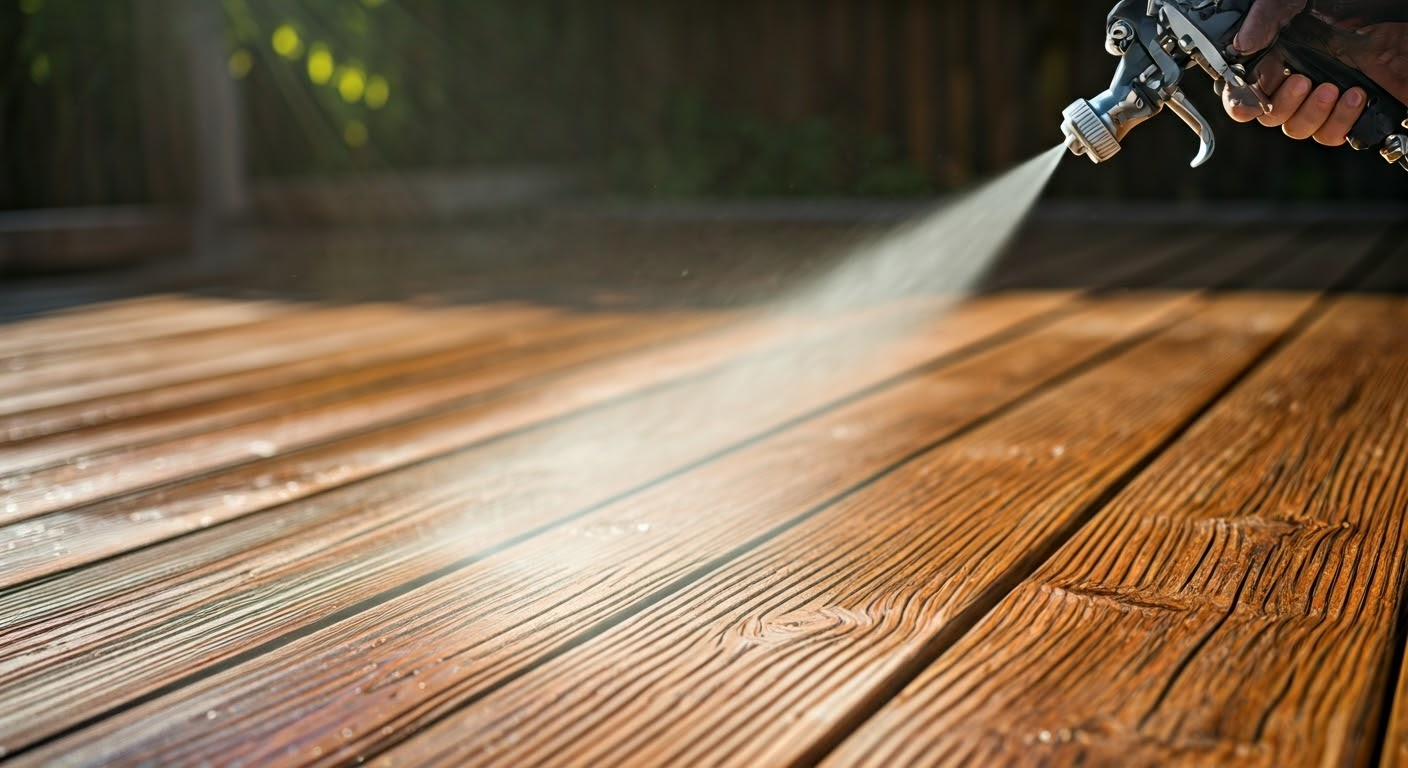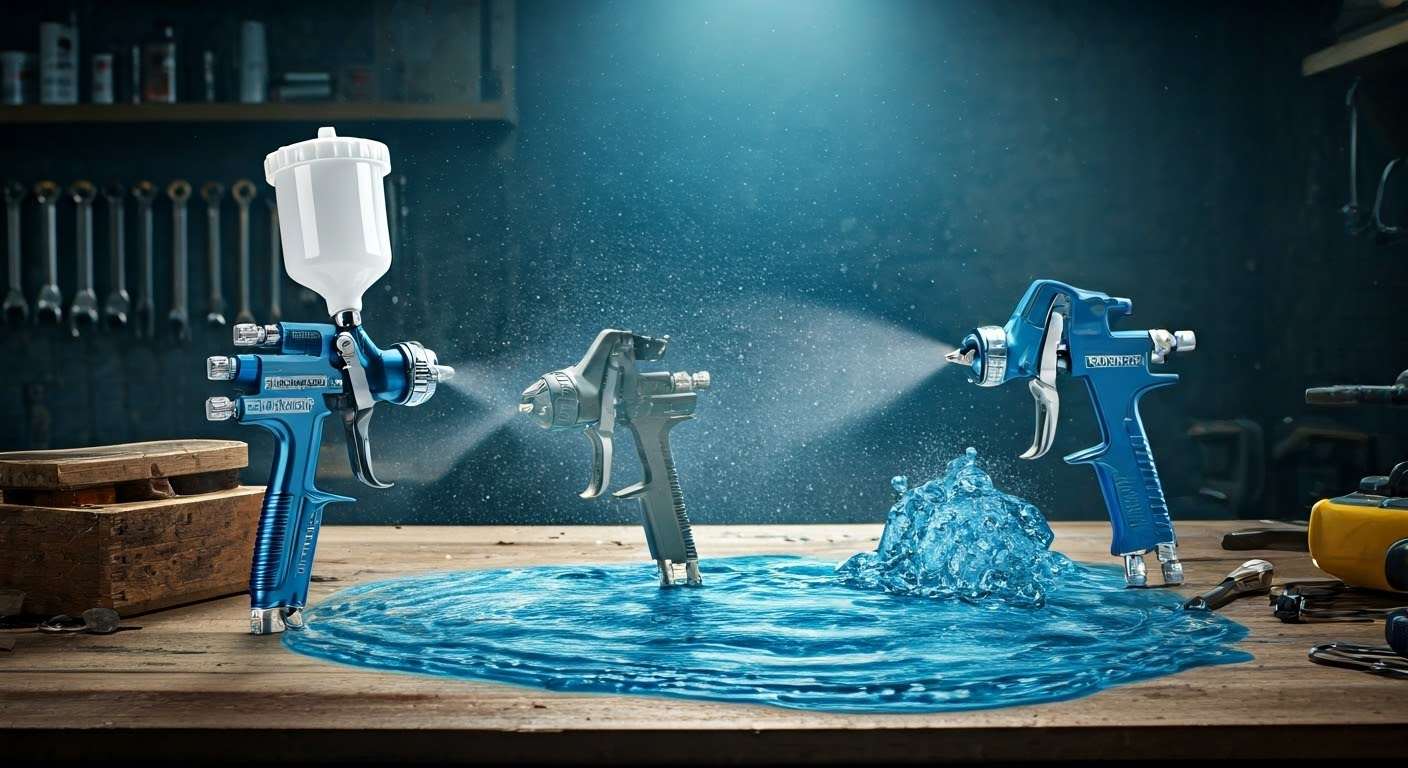
When it comes to protecting your outdoor surfaces, applying a water sealer is essential. While using a garden sprayer to apply water-based solutions like fertilizers is common, you might wonder if the same applies to water sealers.
Yes, you can use certain types of sprayers for water-based sealers, but it’s vital to understand the compatibility between the sprayer and the sealer type, whether it’s water-based or solvent-based, to achieve the best results and avoid damaging your equipment.
Compatibility of Paint Sprayers with Water Sealers

Not all paint sprayers are created equal, and their compatibility with water sealers depends on the sealer’s base and the sprayer’s design. The key is to match the sprayer’s capabilities with the sealer’s viscosity and application requirements.
Water-based sealers, being thinner, can be effectively applied using garden sprayers or pump sprayers equipped with an adjustable fan sprayer tip. This type of nozzle allows for controlled spraying, ensuring even coverage and minimizing overspray. On the other hand, solvent-based sealers demand a sprayer designed to handle their harsher chemical composition.
Identifying Suitable Paint Sprayers for Water Sealer Application
Choosing the right paint sprayer for water sealer application ensures a smooth and successful sealing process. Here are some commonly used sprayers:
- Standard Pump Garden Sprayers: These are a cost-effective option for applying water-based sealers. Look for a sprayer with adjustable nozzle settings to control the spray pattern and volume.
- Solvent-Resistant Pump Sprayers: Ideal for solvent-based sealers, these sprayers are constructed with materials that can withstand harsh chemicals. They often come with adjustable nozzles for versatile application.
- Airless and HVLP Sprayers: These sprayers offer finer atomization, resulting in a smoother finish. Airless sprayers are better suited for large projects, while HVLP sprayers are more suitable for smaller ones.
Key Differences Between Water Sealers and Traditional Paints
While both water sealers and paints are applied to protect surfaces, they differ significantly in their composition and purpose. Understanding these differences is key to selecting the appropriate application method.
Water sealers are typically thinner than paints, especially those with a water base, and are designed to penetrate the surface, providing protection against moisture and UV damage. Solvent coatings, on the other hand, create a protective layer on top of the surface.
This difference in viscosity and purpose affects how each product is applied. While traditional paints often require multiple coats for full coverage, water sealers are generally applied in thin, even coats, making them well-suited for spray application.
Frequently Asked Questions
1. What types of sprayers are best for applying water sealer?
For water-based sealers, a garden sprayer or pump sprayer with an adjustable fan sprayer tip works well. For solvent-based sealers, opt for a solvent-resistant pump sprayer.
2. Can you use any paint sprayer for water-based sealers?
While many paint sprayers can be used with water-based sealers, it’s essential to check the manufacturer’s recommendations. Ensure the sprayer’s nozzle and pressure settings are compatible with the sealer’s viscosity.
3. How do you adjust a paint sprayer for water sealer application?
Start with a low-pressure setting and adjust as needed to achieve a fine mist. Use an adjustable fan sprayer tip for better control and coverage. Remember to fully prime the sprayer before use and adjust the valve for consistent flow.
4. What precautions should be taken when using a paint sprayer for sealer?
Wear appropriate safety gear, including gloves and a mask, especially when working with solvent-based sealers. Avoid spraying in high-velocity winds, and always work in a well-ventilated area. Clean the sprayer thoroughly after use, following the manufacturer’s instructions for solvent or coating removal.
5. What are the advantages of using a paint sprayer for applying water sealer?
Using a sprayer, like those compatible with popular brands like Thompson’s Water Seal, offers several benefits. It allows for even coverage, especially over large areas, and can save you time compared to using a brush or roller. A sprayer can use less product overall, as it reduces the need to go over areas multiple times.
6. What are some tips for effectively using a paint sprayer to apply water sealer?
Always work in well-ventilated areas. Apply thin, even coats, overlapping slightly to avoid streaks. Keep the sprayer moving at a consistent speed to prevent runs or drips. Have a paintbrush or roller handy for smoothing out any puddles or missed spots immediately.
Last Word
Using a paint sprayer for water sealer application can be efficient and effective when done correctly. It’s essential to choose the right type of sprayer and make necessary adjustments for optimal results.
Understanding the differences between water sealers and traditional paints is key to achieving a successful application.
